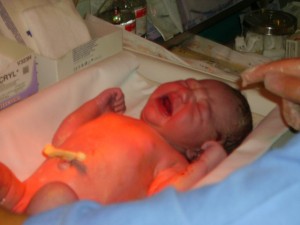Banning early C-sections is a very interesting headline…I am not sure how hospitals in Oregon are going to actually enforce this hard line control on early, elective Cesarean sections.
Having a c-section for other than true medical necessity is never a good idea…the baby is still developing during the last weeks of pregnancy. Certainly it is not a great thing for a newborn to be shuttled off to the NICU for respiratory problems due to an early elective c-section…not to mention the added cost of the NICU care.
- After delivery if a baby is in the NICU the bonding that is so important is difficult because mom is dealing with her own post-op pain and restrictions.
- Breast feeding then becomes more difficult as well and cannot be established as early in the postpartum period as it generally is after a vaginal delivery.
It will be very interesting to watch how all this ‘plays out’ in Oregon and how it influences what is happening in other states as well.
Starting next week, many hospitals in Oregon will be taking a stand against early and elective Cesarean sections, MSNBC.com reports. C-sections have become commonplace, and federal statistics now show that surgical deliveries account for more than 30 percent of all U.S. deliveries.
However, Oregon officials are now working toward the goal of giving “babies more time for important development and to reduce costly complications after birth,” MSNBC reports.
Seventeen Oregon hospitals (including all nine birthing hospitals in the Portland area) are implementing a “hard stop” on these elective procedures, says the March of Dimes’ Oregon chapter, as quoted in the MSNBC report. According to a 2009 study published in the New England Journal of Medicine, about 1 in 3 C-sections is performed before 39 weeks (37 to 41 weeks is considered full term).
Related post:http://parentingintheloop.wordpress.com/2011/08/23/oregon-plans-ban-on-c-sections/
